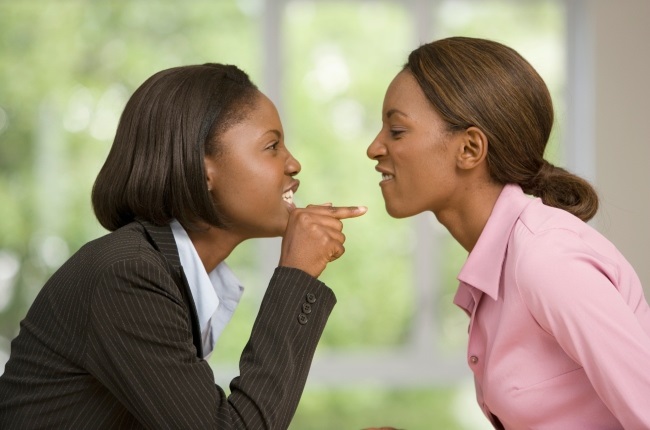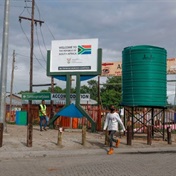
The statistics are out there, and they are overwhelming.
Between 25% and 40% of South African women have experienced sexual or physical intimate partner violence (IPV) in their lifetime.
But the same cannot be said about same sex relationships, as the cases are not as widely reported.
Popular South African telenovela, The River, has a storyline that highlights intimate partner violence in a homosexual relationship, where one of the women is abusing the other, both verbally and physically.
Tshepiso, played by Gaosi Raditholo is in a lesbian relationship with Keneilwe, played by Nozuko Ncayiyane. But Keneilwe is abusive towards her. It has taken her best friend Dimpho Mokoena, played by Matshepo Sekgopi, to raise the alarm to the people around her.
Despite initial resistance, they have now rallied around Tshepiso to let her know that she is valued and loved by those close to her.
The family and friends had initially resisted getting involved because Tshepiso had denied the abuse, but also, some thought that because they are a same sex couple, there can be no intimate partner violence.
Mohale Motaung, who has been very public about the alleged abuse he suffered in his same sex relationship, says IPV is prevalent in the gay community.
“Because of the stigma, people don’t want to come out and talk about being victims of abuse,” says Mohale.
“The reality is that it can exist in any kind of romantic relationship. But when it comes to the LGBTQI community, people are afraid that no one will believe them. A common thing that people will say is that if two men are in a relationship and one abuses the other, why didn’t the other one fight back because he’s a man too.
Read more | PICS: Mohale shows pictures of his bruised face and damaged car
“But GBV is not just about the physical assault. It is about the power dynamics in the relationship. There is a buildup that happens before the actual abuse. So, people cannot assume that because its two men or two women, they have the same strength levels.
“Generally, is it difficult to come out as a victim and society discourages victims from coming forward by stigmatizing them. There is already a stigma attached to people in same sex relationships because their set up does not allow them to be themselves. So then in instances of abuse, people then make homophobic comments before dealing with the actual abuse,” he adds.
Unisa’s Dr Joshua Ndlela, who is also a counselling psychologist in private practice, says it is important to understand that the violence is an intentional use of force on one by another.
“It is usually done to assert dominance, power and control. It has to do with how to show that control and to show who is supposed to be submissive in the relationship.
“Victims cannot simply be expected to hit back because they are the same sex, because this is about authority and to show who has got the most influence in the relationship.
“There is also a lot of stigma attached to this. It is always difficult to disclose violence, regardless of the gender or the sexual orientation. No act of violence is easy to disclose, even in heterosexual relationships. Same sex couples then have the added stigma of being gay.”
Dr Ndlela says there is still a lot of learning and unlearning that still needs to be done by society.
Read more | Same-sex couple to feature in new season of Makoti, Are You The One?
“There is even a lack of knowledge on how to handle such cases when they are reported to law enforcement because they do not know how to handle them. Even in heterosexual relationships, it is difficult for men to disclose when they have been abused by their female partners.”
Transgender activist Yaya Mavundla says “abuse is abuse, you cannot say it’s not because it’s woman to woman or man to man.”
She says whoever thinks they have the power in the relationship, tends to be the one that perpetrates the abuse.
“Years ago, I was a victim of abuse when I still identified as a gay man. I was in an abusive relationship with a trans man. It is not easy to reveal to people that you are being abused.
“Victims often think about how people are already talking about their relationship, and so they do not want to add another layer of abuse to it. Reporting the crimes also comes with a lot of questions like ‘why didn’t you hit back?’ and that is wrong.
“You would be shocked at the number of people in the LGBTQI community that are in abusive relationships. It’s just that the moment you speak out, you open a space for homophobia and transphobia. We need to correct the narrative that people in same sex relationships cannot be victims of gbv. Regardless of who people are, abuse is still abuse.”



















